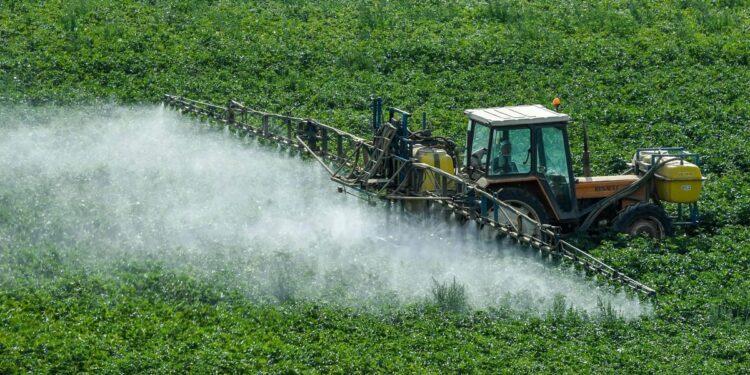Organic farming can lead to the use of more pesticides in fields next to conventional farming, according to a study published Thursday and conducted in California.
• Read also: Farmers’ protests: nearly 400 km of highways blocked in France
• Read also: Trout, cacti, sheep, mushrooms and vineyards: welcome to Montreal, capital of urban agriculture
• Read also: Quebec is producing more and more fruits and vegetables from here
This undesirable and unintentional effect can, however, be countered by grouping organic fields next to each other as much as possible, underlines the study, published in the prestigious journal Science.
Ashley Larsen, lead author, insisted during a press conference that she did not want this work to be “reduced to a title”.
“We expect growth in organic farming in the future, so how can we ensure that this does not cause collateral damage?”, she summarized to explain her approach.
This environmental science researcher at the University of California, Santa Barbara and her colleagues studied some 14,000 plots in Kern County, California, which grow a wide variety of produce, such as grapes, lemons, almonds, pistachios, tomatoes , potatoes…
The researchers took into account the maps of the fields studied, their organic or non-organic classification, and data on their use of pesticides.
They observed that organic farming was associated with slightly higher pesticide use on nearby conventional fields, but also with a greater reduction in pesticides on neighboring organic fields.
“Our hypothesis (…) is that organic farming harbors a greater population of harmful insects, but also of their natural enemies,” explained Ashley Larsen. So, conventional fields “have a smaller population of natural enemies, and when they see the pests coming, they increase their pesticide use.”
The researchers also observed that the use of pesticides on conventional fields decreased as their distance from organic fields increased.
“It could be interesting to think about measures to encourage the grouping of fields practicing organic farming,” suggested the researcher.
In a separate commentary article, also published in Science, Erik Lichtenberg of the University of Maryland pointed out that although researchers had shown that farmers’ pesticide decisions were influenced by the presence of organic fields, the mechanisms behind The work remained unclear.
The nature of the products grown, their resistance to insect pests, and the personal practices of farmers can play a role.
“Which insect pests are involved, where they come from, and how they move are things that are poorly understood,” he wrote, calling for more research on the subject.



